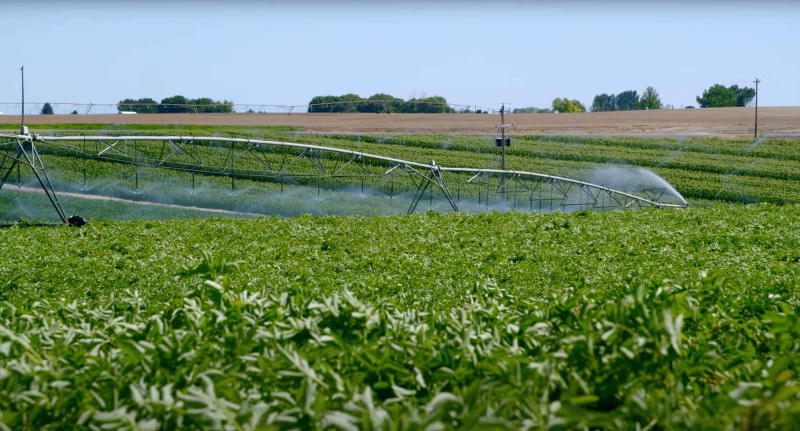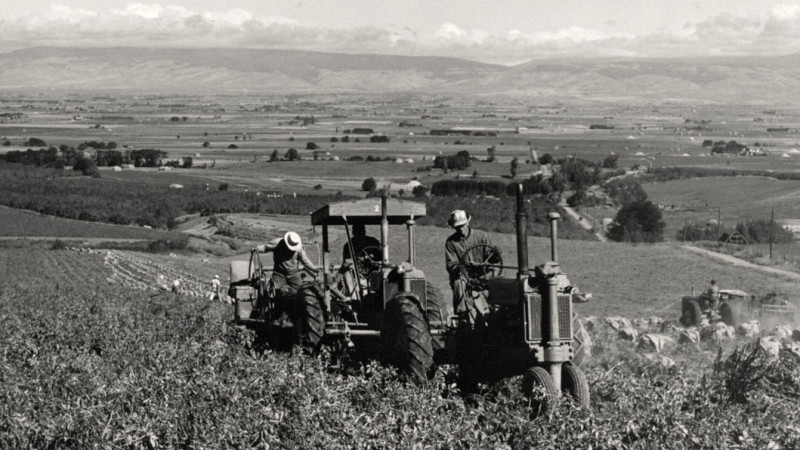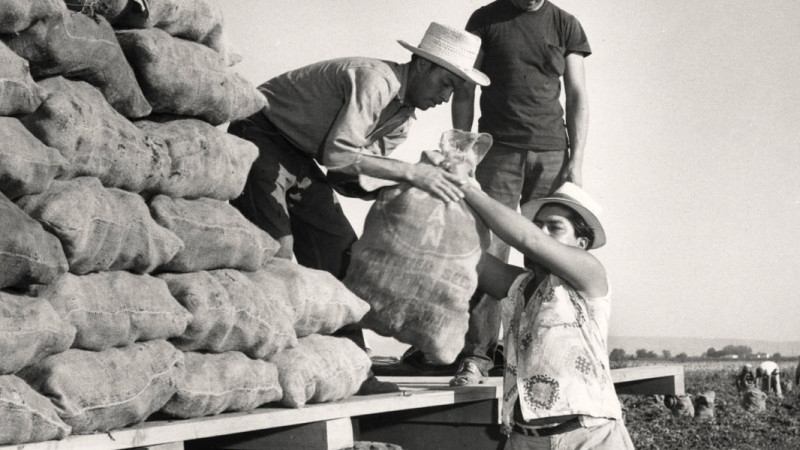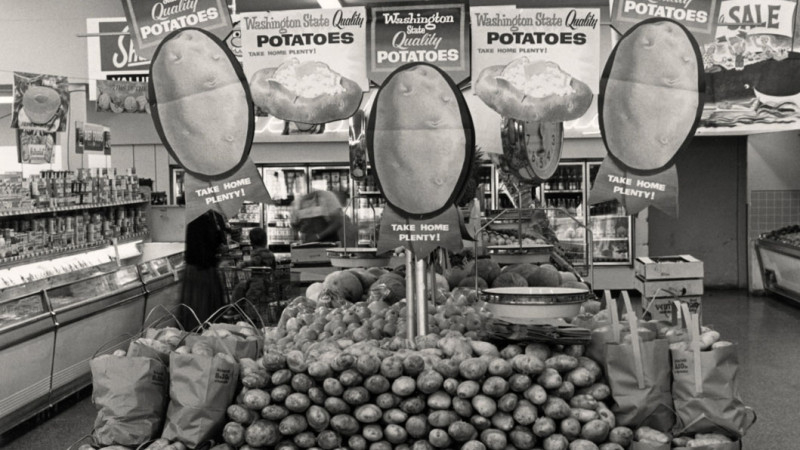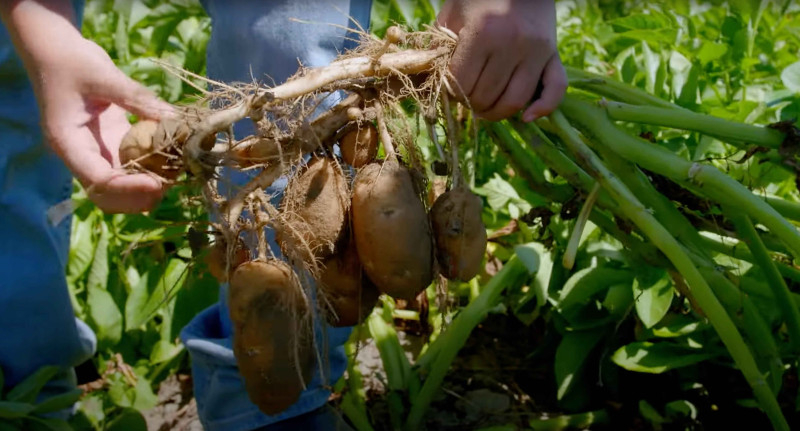All Hail The Versatile Vegetable!
When you’re the king of vegetables, everyone wants to take a bite - but as the saying goes, there’s a potato for every occasion.

Potatoes, humble and unassuming, hold a special place in American cuisine. Few foods are as versatile, nutritious, and ingrained in our culinary traditions as this starchy staple. Although neighboring Idaho is more well-known for their spuds, Washington ranks second in the nation in potato production. While we’re keeping score, it’s only fair to add that Washington ranks first in yield per acre. From crispy fries to creamy mashed potatoes and beyond, Washington potatoes truly are the versatile vegetable.
The potato may not be native to Washington, but it has been an integral part of the state's agriculture for centuries. The versatile tuber found its way to the region in the 1790s and was widely cultivated by Northwest Indian tribes long before non-Native settlers arrived. Tribes had a history of cultivating various root crops, such as wapato, onion, and camas, making the addition of potatoes a natural evolution. Initially, the potato varieties grown by tribes were closely related to those from Chile and Mexico. However, European varieties brought by non-Native settlers gradually became dominant in the state by the mid-1800s.
Washington’s rich volcanic soil, extended growing season, ample water resources, and favorable climate make it an ideal environment for cultivating potatoes. In the years since potatoes first arrived in Washington, the potato industry has grown into the state's second most valuable crop, with an annual production value of nearly $800 million. Washington growers harvest an average of 30 tons per acre, which is double the national average in the United States. Furthermore, a whopping 90% of Washington's potatoes find their way into various processed forms, with frozen French fries leading the pack.
Potatoes are grown primarily in Eastern Washington and the lush Skagit Valley. The arid conditions of Eastern Washington, initially challenged by insufficient rainfall, found their solution with the construction of the Grand Coulee Dam on the Columbia River. This engineering marvel paved the way for large-scale irrigation through the Columbia Basin Project. On the other hand, the Skagit Valley boasts sub-sea-level soils that offer an ideal environment for cultivating a colorful variety of potatoes, from the classic white and red to the more vibrant purple.
The russet potato, known for its fluffy, dry texture, is a preferred variety for making baked potatoes. Yukon Gold, on the other hand, brings a rich, buttery taste to mashed potatoes, making them a holiday dinner staple. Fingerling potatoes, known for their delicate, nutty flavor and waxy texture, are perfect for roasting and adding an elegant touch to any meal. Potatoes can be at home in nearly any meal: whether you’re creating a main course or an appetizer, savory or sweet, baked, fried, or boiled – as the popular meme says, there’s a potato for every occasion. Breakfast? Hash browns. Fast food? Fries. Snacking? Chips. Fancy dinner? Twice-baked potato. Holiday party? Heck, even vodka comes from potatoes.
While potatoes have sometimes borne the brunt of dietary criticism due to their starch content, perceptions are shifting as we uncover the hidden health benefits of this versatile vegetable. Potatoes serve as an excellent source of essential nutrients, including vitamin C, potassium, and dietary fiber. They're naturally fat-free and cholesterol-free, making them a guilt-free addition to a balanced diet when prepared thoughtfully. Additionally, potatoes offer valuable antioxidants, particularly when consumed with their skins. The presence of anthocyanins, especially in colorful potato varieties, can play a role in protecting against certain chronic diseases, promoting overall health.
The potato industry in Washington State is not just about volume; it's also about innovation. Local farmers and researchers are continually exploring new ways to improve crop yield and sustainability. Forward-thinking practices, including precision agriculture and water-saving techniques, are becoming integral to the state's potato farming landscape. New data-sharing efforts (like the WSU DAS featured on page 14) mean farmers are able to grow potatoes with more precision and less waste. These efforts not only contribute to the quality of the crop but also to environmental conservation.
From the fertile fields of Washington to dining tables across the nation, the potato, versatile and enduring, continues to be a beloved ingredient in American cuisine. Whether it's the countless variations on classic dishes, the diverse varieties grown in Washington, or the emerging understanding of their health benefits, the potato is a true culinary chameleon. In the state known for its rich agricultural heritage, potatoes stand as a testament to the enduring role of versatile vegetables in our lives, our traditions, and our future.

